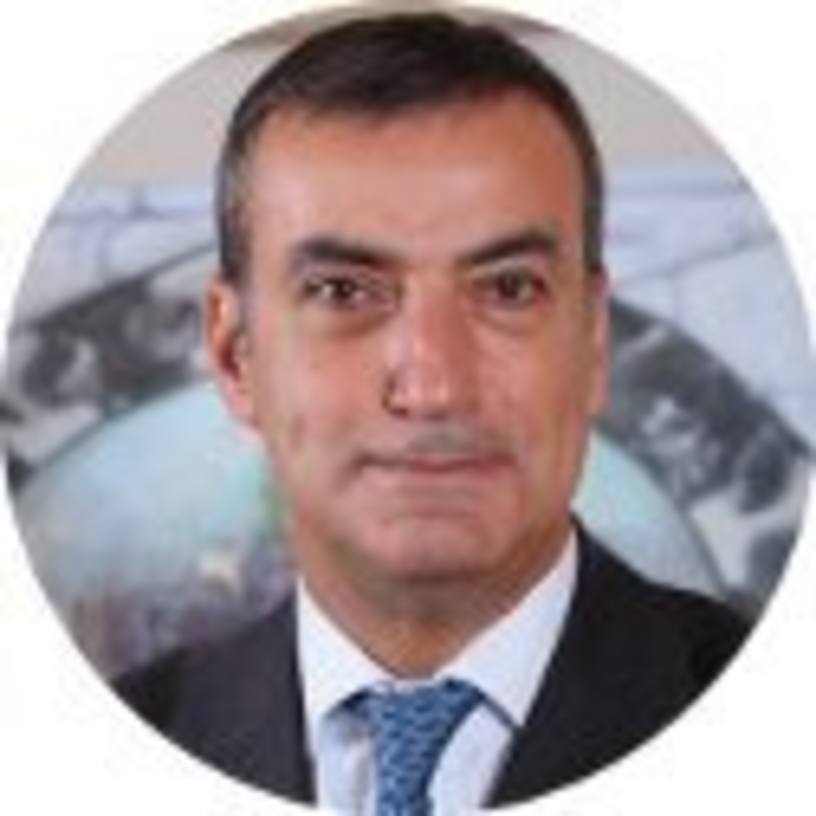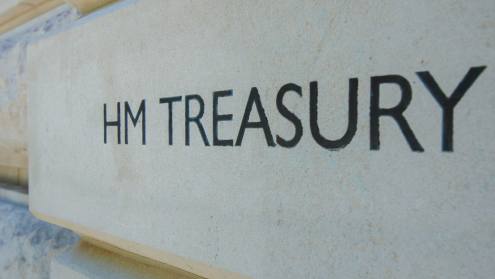Turkey's fledgling private banking and asset-management businesses are taking off. Private banking is only nine years old in Turkey, but most of the country's large and medium-sized banks have established private banking units to deal with an estimated 180,000 customers with bank deposits of at least Tl250,000 ($165,500) each.
Turkish banks offer a wide range of products to high-net-worth customers, including mutual funds composed of domestic and international securities, foreign shares and bonds, exchange-traded funds, futures, options and other derivatives products, based on global precious metals and agricultural commodities.
Global ambitions
"All markets in the world can be investment areas," says Fikret Önder, executive vice-president responsible for private banking at Akbank, a large commercial bank and the first financial institution in Turkey to establish a private banking division. "The horizon of Akbank Private Banking is as wide as the entire world. As investment strategies for our customers are developed, our managers evaluate investment opportunities all over the world."
Akbank offers its private banking services to customers with at least Tl500,000 in assets, and special wealth advisory services are offered to families with assets of at least Tl5m.
Private banking customers in Turkey are also advised on mortgages, leasing, acquiring business properties and even the purchase of yachts. Yapi Kredi, a large commercial bank, for instance, advises its private banking customers in the areas of building and maintaining art collections and updates clients with information about artworks through its Yapi Kredi Cultural Activities Arts and Publishing, one of Turkey's leading arts and culture companies.
With international securities and derivative products, Turkish banks and asset-management companies work closely with foreign banks, brokerage houses and international commodities traders, and innovative products are entering the market.
Earlier this year, Akbank and its affiliated Ak Asset Management Company, working with Templeton Franklin Investment Services of the US, launched BRIC Funds for their wealthy customers. These BRIC Funds are based on a basket of high-dividend-earning shares in companies from Brazil, Russia, India and China.
Four major Turkish banks, led by Is Bank and Garanti Bank, this year introduced capital-protected gold funds, based on gold futures and options, which have been snapped up by investors as gold prices have soared.
Tough competition
The market size for private banking in Turkey is potentially enormous. With wealth in the country concentrated in the hands of a small segment of the population, bankers say competition among the country's banks for the deposits of wealthy Turks is extremely intense.
As of the end of July 2010, Turkey had 32,170 investors (including 780 foreigners) with deposits of at least Tl1m accounting for about half of total deposits, reports the Banking Regulation and Supervision Agency, Turkey's supreme banking authority. Bank deposits in Turkey total Tl568bn.
"These figures give an idea of the potential size of the market," says Mr Önder. A Merrill Lynch and Capgemini report earlier this year said Turkey had 33,700 Turkish lira millionaires. But Mr Önder estimates this figure at 50,000, including those who keep their assets outside the financial system or in banks abroad.
From October 2008 to the end of 2009, the Turkish government managed to attract into the country's bank system $31.6bn in funds mainly held by Turks living abroad - about one-seventh of all savings held by Turks in foreign banks - under the so-called 'Asset Peace Plan'. Under the plan, the government asked no questions about the sources of the funds and left them untaxed, as long as the funds remain in Turkey. Most of these funds have entered the Turkish banking system and are now managed by the private banking units of Turkey's financial institutions, bankers say.
"The Asset Peace Plan has had positive effects on the banking market," says Mr Önder. Through the efforts of Akbank Private Banking, 60 individuals brought a total of Tl500m in deposits to Turkey. If the asset peace campaign is extended, considerable new funds are expected to enter the Turkish market. This is because many domestic investors now see Turkish banks as more trustworthy than foreign banks, report bankers.
"In the past 18 months, many wealthy individuals have closed their accounts in Swiss and other European banks and have become Akbank customers," says Mr Önder. "Interest rates in Turkey are higher [than in other European countries]. Presently, Turkey is a safer port than many markets."
Arif Tepe, head of sales management at Yapi Kredi Asset Management, adds: "Turkey is attracting funds because it is the rising star of investors' markets. It is a country that has a future. In the past, customers would go and ask bank and asset managers about what products they should invest in. Today, they want to know which organisation should carry out their investments. Turkish financial institutions are attracting funds because the Turkish market is more sound and better regulated than markets in [the EU]."
But Özcan Türkakin, deputy general manager of Is Bank, Turkey's largest commercial bank, says the asset peace initiative only brought a one-off injection of funds into the Turkish banking market. He adds that the government's plan to turn Istanbul into an international financial centre will help to draw funds into Turkey on a continuous basis. "The Istanbul financial centre is being viewed as an opportunity," says Mr Türkakin.
An opening of options
In the past, high-net-worth individuals in Turkey had very few options to maintain their wealth. Some held on to precious foreign exchange, which was an illegal practice that could land a person in jail until the early 1980s. Or they acquired properties, or turned over their money to the banks for high returns - as a hedge against inflation.
During the turbulent 1980s and 1990s, when Turkey was rocked by double- and triple-digit inflation, the banks sought to lure wealthy Turks to invest their deposits by offering above-market interest rates. But this led to a war over interest rates and to the collapse of more than two-dozen banks and the loss of billions of dollars in savings.
The government responded by weeding out the weaker banks and establishing a supervisory agency that regulates the banking system with stringent capital-adequacy requirements.
Asset management to the fore
Turkey's asset management companies, established only eight years ago, manage the mutual funds and capital-protected funds, discretionary funds and exchange-traded funds issued by the country's banks and brokerage houses and the pension funds of the country's pension companies.
The country has 25 asset management companies, most of which are owned by the country's leading banks and brokerage houses. Four companies dominate the asset-management business in Turkey - Is Asset Management, a subsidiary of Is Bank; Yapi Kredi Asset Management, owned by Yapi Kredi bank; Ak Asset Management, controlled by Akbank; and Garanti Asset Management, owned by Garanti Bank - according to the Capital Market Board, a state agency that monitors stock and bond trading. As of July 31, 2010, these four companies had Tl32.3bn in assets under management, or 75% of all assets under management.
Total assets under the management of Turkey's asset management companies as of July 31, 2010, stood at Tl42.9bn, of which 75% was in mutual funds. Five foreign-owned asset management companies operate in the system - HSBC Asset Management, ING Asset Management, Ergo Asset Management, Ashmore Asset Management and Unicorn Asset Management - but the total assets managed by these foreign companies stood at a mere Tl3.1bn, or about 7.3% of the Turkish market.
"Turkish asset management has come a long way [in the past eight years]," says Turan Erol, former chairman of the Capital Market Board. He notes that the first mutual fund in Turkey was launched in 1987. The value of mutual funds under management in Turkey, he said, tripled from Tl10bn in 2002 to Tl31bn at the end of July 2010.
The number of investors in mutual funds in Turkey also increased from 1.5 million in 2002 to 3.3 million at the end of 2009, he says.












